How fruitful was Zelenskyy’s European tour?
Ukraine’s president visits Rome, Berlin, UK and Paris in bid to increase the supply of weapons from allies
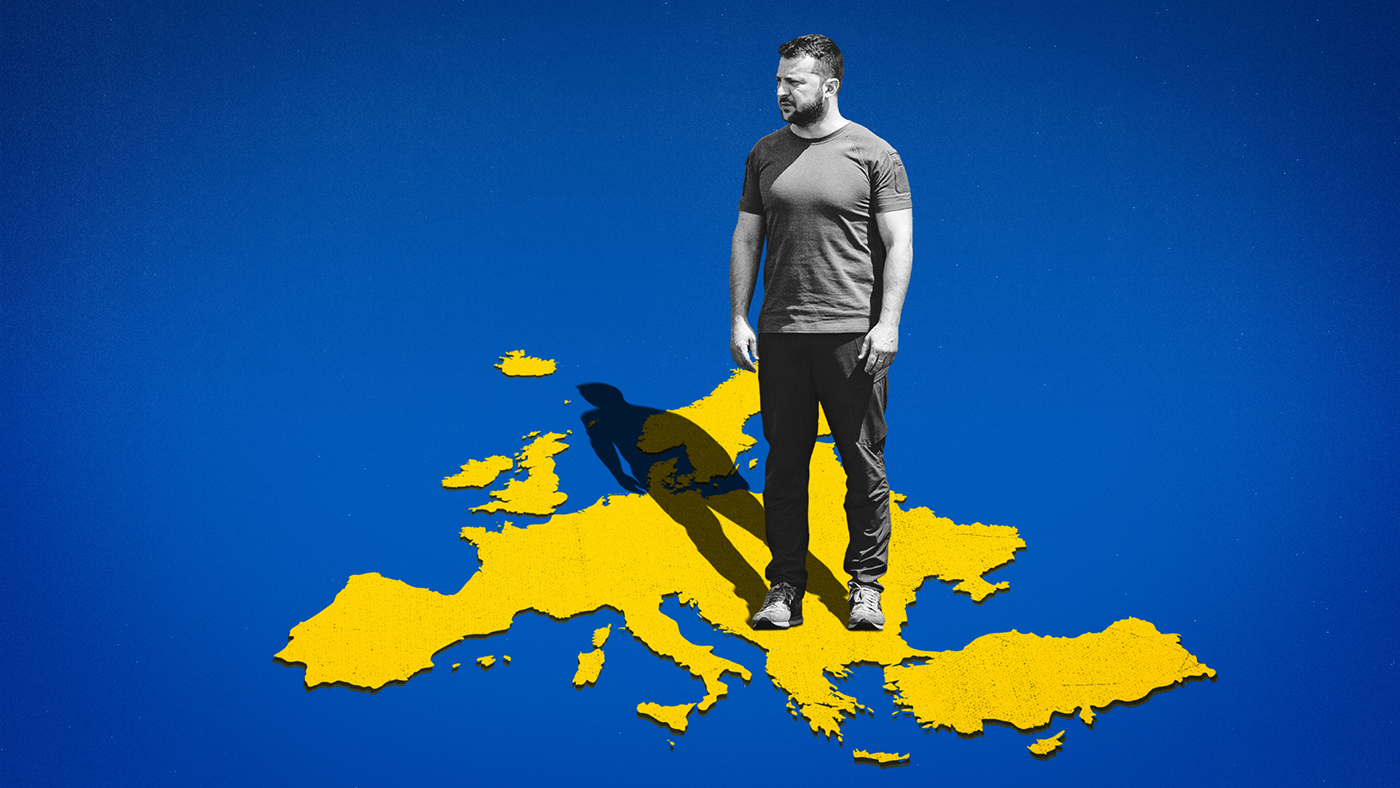
A free daily email with the biggest news stories of the day – and the best features from TheWeek.com
You are now subscribed
Your newsletter sign-up was successful
Ukraine’s President Zelenskyy paid a surprise visit to Britain this week, at the end of a whirlwind tour of Europe that also took in Rome, Berlin and Paris. Having been flown to Chequers in an RAF Chinook helicopter, Zelenskyy spent two hours in talks with Rishi Sunak.
After the meeting, the PM announced that Britain would be sending hundreds of newly developed attack drones – with a range of about 124 miles – to Kyiv. Sunak also pledged to lead efforts to secure more advanced Western fighter jets for Ukraine. Earlier, Britain had announced plans to send long-range Storm Shadow cruise missiles to help Ukraine defend itself from Russia.
Zelenskyy had embarked on his tour as the Ukrainian military prepared to launch its long-awaited counteroffensive against Russian forces. This week, Ukraine claimed that it had forced Russian troops back from some areas around the eastern city of Bakhmut, after months of fighting. In response to Zelenskyy’s lobbying of Western governments, Moscow pounded Kyiv with missiles, some of which targeted US-supplied Patriot anti-missile defence systems.
The Week
Escape your echo chamber. Get the facts behind the news, plus analysis from multiple perspectives.

Sign up for The Week's Free Newsletters
From our morning news briefing to a weekly Good News Newsletter, get the best of The Week delivered directly to your inbox.
From our morning news briefing to a weekly Good News Newsletter, get the best of The Week delivered directly to your inbox.
What did the papers say?
Zelenskyy landed in Britain at a “critical moment for the war that is tearing his country apart”, said The Times. Limbering up for its counteroffensive, Kyiv is hoping to capitalise on low Russian morale, but needs more weapons in order to do so. Zelenskyy did well to win commitments from Britain, France and Germany to send further hardware to Kyiv – but if Ukraine is to win this war, it will need modern fighter jets such as F-16s, and pilots to fly them. Pledges by France, Britain and more to train Ukrainian pilots are therefore welcome; but this apparent softening of Western countries’ stance on the question of jets has come too late to help Kyiv this spring.
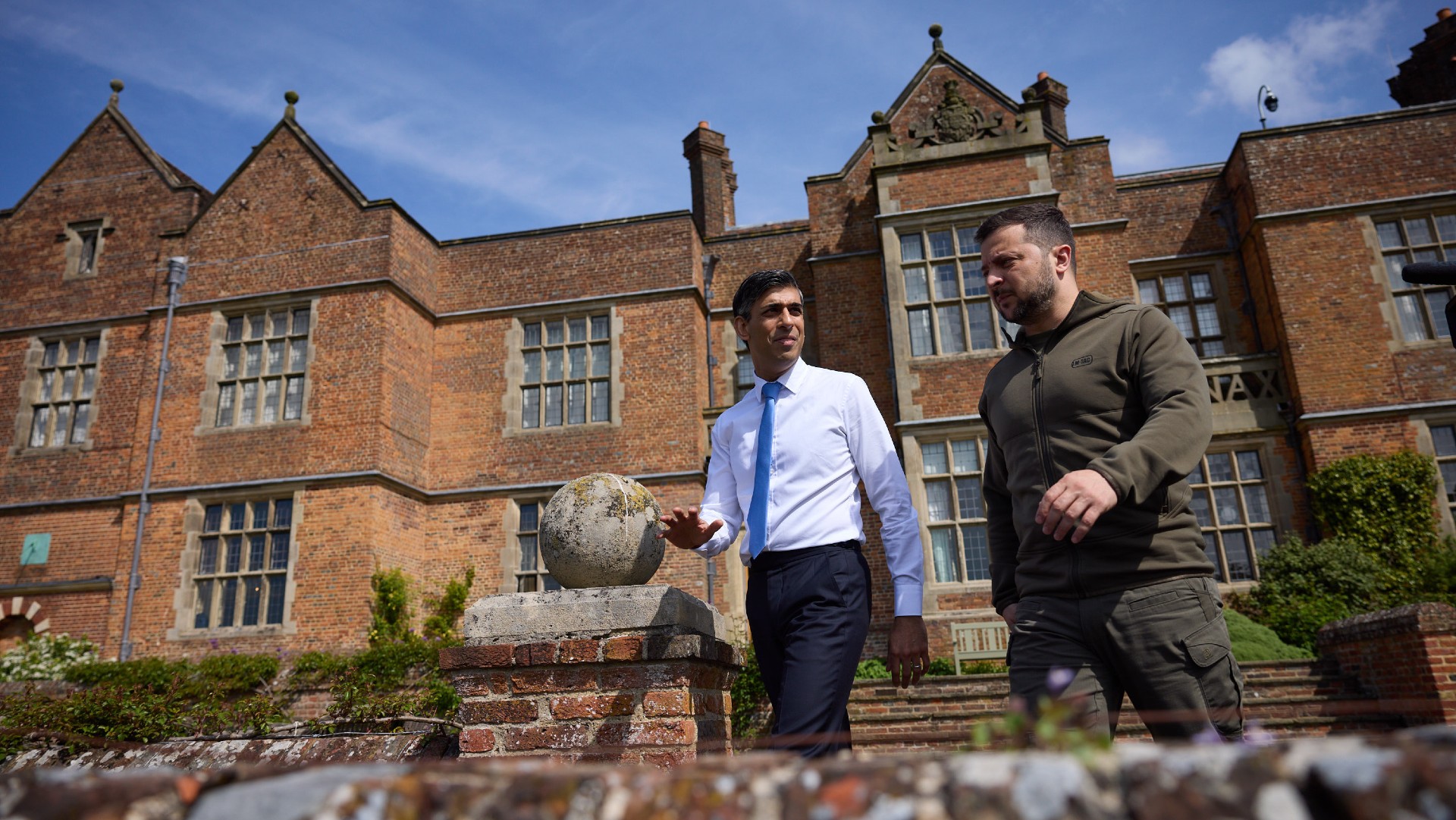
Retaking Russian-occupied territories won’t be easy, said The Daily Telegraph – especially if Moscow deploys the aerial firepower that it has so far failed to use to maximum effect, for fear of its planes being shot down. Ukrainian gains near Bakhmut are encouraging, said The Independent. Moscow views the city as a gateway through which its forces can advance to other eastern cities such as Slovyansk and Kramatorsk; but Ukraine now appears to have the upper hand in an attritional battle for Bakhmut that has been raging for the best part of a year.
Zelenskyy’s tour of Europe was extremely fruitful, said Dan Sabbagh in The Guardian – a point underlined by Russia’s retaliatory bombing of Kyiv hours after it ended. (Kyiv claims all missiles were intercepted.) But the question remains: has Kyiv been promised enough weapons to make a decisive breakthrough? Some, including Storm Shadow missiles, are already being used; but most won’t arrive until “later this year”, betraying an acceptance that the war will drag on.
A counteroffensive of “unexpected timing, nature or location” could still be devastating to Russia, said William Hague in The Times. Moscow wasted the chance to replenish its forces this winter, and instead expended vast resources around Bakhmut. Worse, its military sorely lacks leadership, leaving different factions competing for control. This “collective failure” is now producing “open dissent” within Russia’s war machine: witness Wagner Group leader Yevgeny Prigozhin’s extraordinary rant about Russia’s military elite. Some have suggested that the “happy grandfather” he mentioned, who might turn out to be an “asshole”, could have been a reference to President Putin himself.
A free daily email with the biggest news stories of the day – and the best features from TheWeek.com
Last week’s Victory Day Parade in Moscow also raised speculation that confidence in the invasion is waning in Russia, said Jonathan Este on The Conversation. Usually a “big deal” for Putin, and a massive show of “imperial might”, the parade was much slimmed down; it drew a smaller crowd than usual; and featured only one tank.
What next?
There is no realistic chance of Ukraine’s counteroffensive producing a “decisive victory”, said Frank Ledwidge on Reaction. Nor is there currently “any appetite for settlement or ceasefire” in Kyiv. Instead, Ukraine’s focus is on increasing the supply of weapons from its allies, and agreeing a plan for it to join Nato once this war is over, to secure its long-term security. We’ll find out at the Nato summit in July whether the alliance’s members are open to that idea. But if Nato really wants to help Ukraine, it must “get serious” about replacing the current “piecemeal system” of weapons donations with more permanent commitments
Meanwhile, a diplomatic spat erupted between the US and South Africa last week after Washington alleged that, in December, arms and ammunition had been loaded onto a sanctioned Russian-flagged cargo vessel docked at a naval base near Cape Town. Pretoria, which describes itself as non-aligned in the war, says there is no evidence to support the claim; the US ambassador to South Africa, Reuben Brigety, had earlier enraged Pretoria by saying he’d “bet his life” on the veracity of the allegation. The Netherlands has agreed to co-lead the “international coalition” with Britain to help procure F-16 fighter jets for Ukraine to improve Kyiv’s “combat air capabilities”.
-
 Switzerland could vote to cap its population
Switzerland could vote to cap its populationUnder the Radar Swiss People’s Party proposes referendum on radical anti-immigration measure to limit residents to 10 million
-
 Political cartoons for February 15
Political cartoons for February 15Cartoons Sunday's political cartoons include political ventriloquism, Europe in the middle, and more
-
 The broken water companies failing England and Wales
The broken water companies failing England and WalesExplainer With rising bills, deteriorating river health and a lack of investment, regulators face an uphill battle to stabilise the industry
-
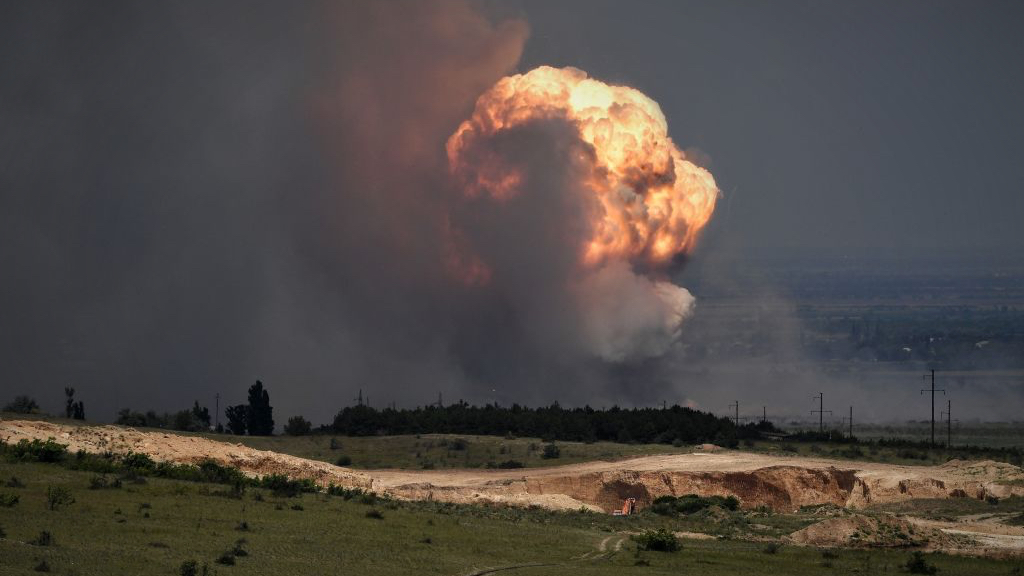 Russia's Crimea fleet shipyard on fire after Ukrainian missile strike
Russia's Crimea fleet shipyard on fire after Ukrainian missile strikePhotos and videos showed huge explosions and raging fires at the Sevastopol Shipyard
-
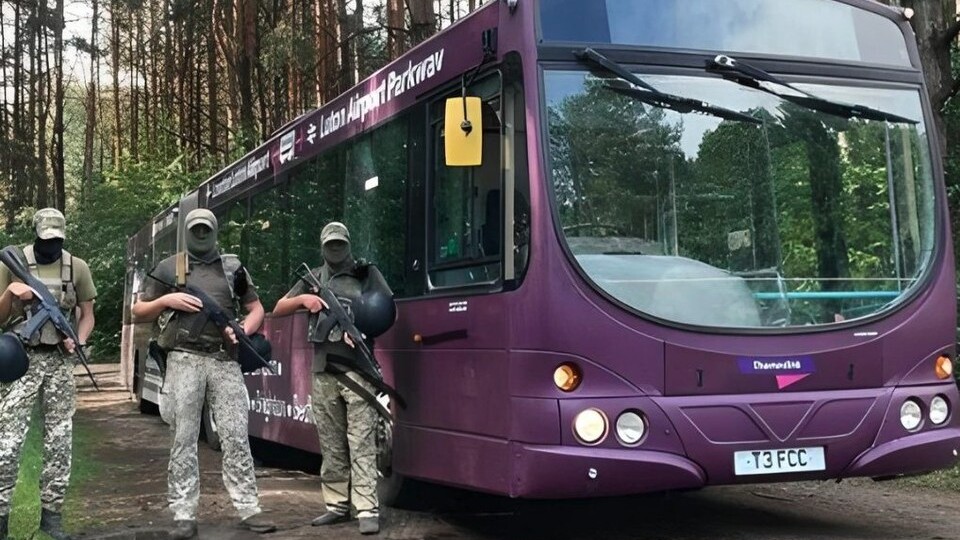 Luton Airport bendy buses join Ukraine war effort
Luton Airport bendy buses join Ukraine war effortfeature And other stories from the stranger side of life
-
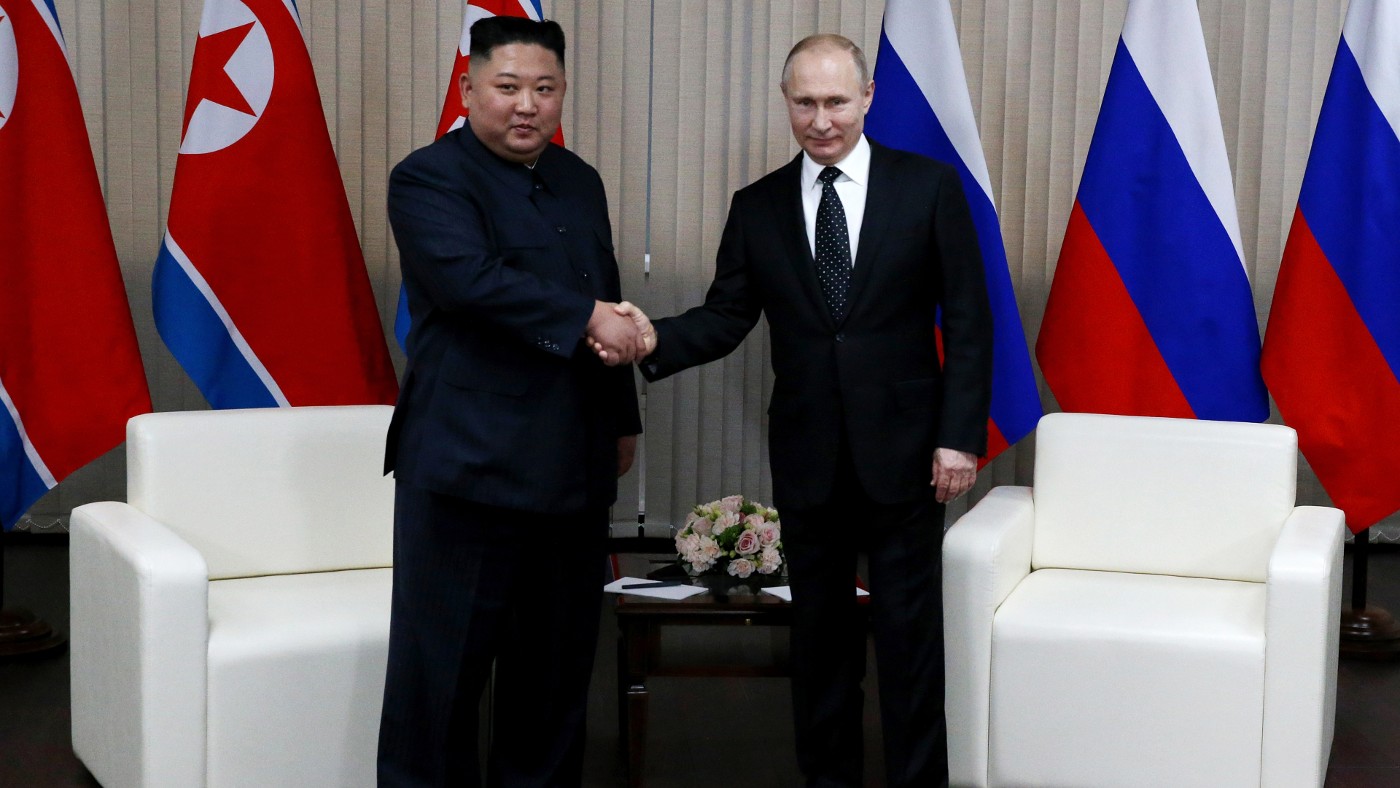 Would North Korean weapons tilt the war Russia’s way?
Would North Korean weapons tilt the war Russia’s way?Today's Big Question Putin wants to boost ‘depleted stocks’ but Pyongyang’s arms may be in poor condition
-
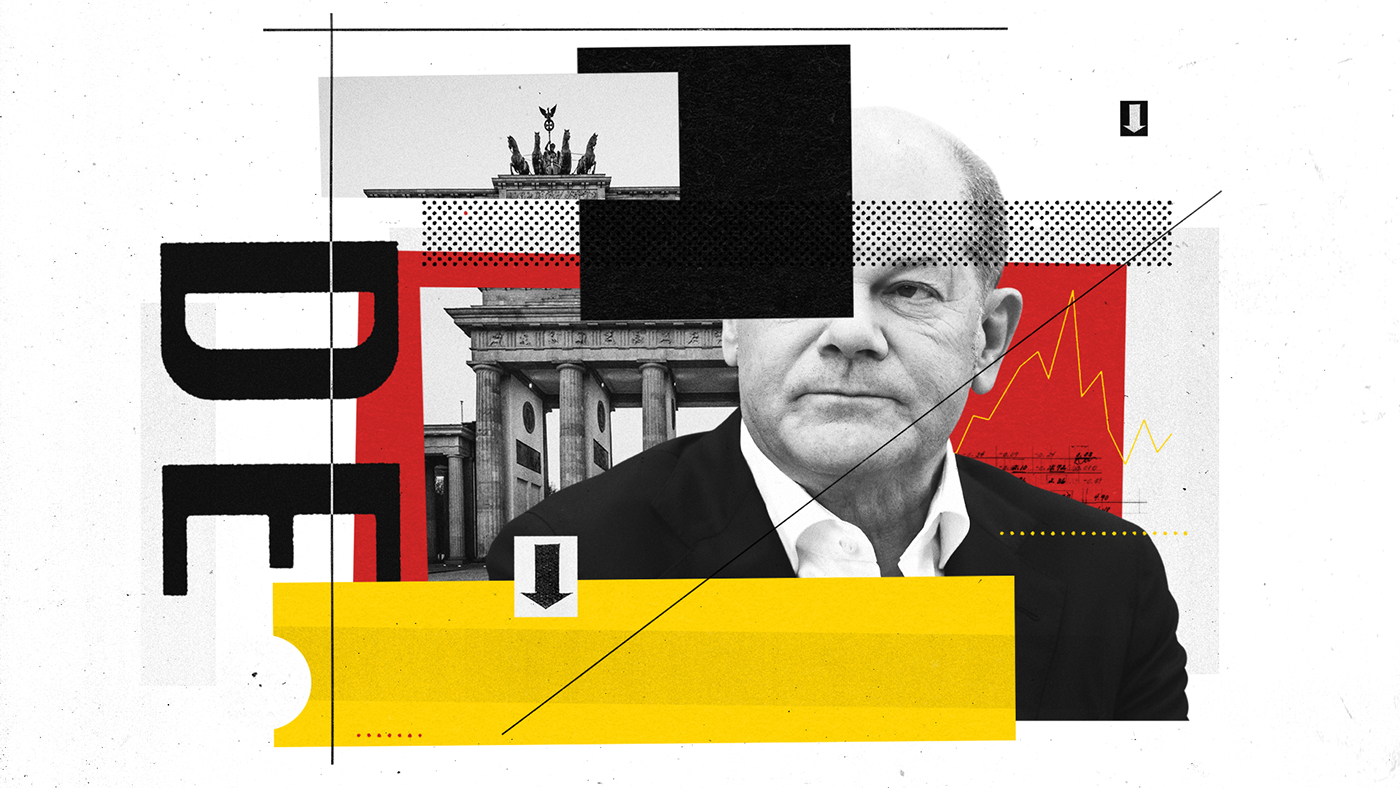 What went wrong with the German economy?
What went wrong with the German economy?Today's Big Question ‘Deep-rooted’ and ‘knotty’ problems threaten return of ‘sick man’ label
-
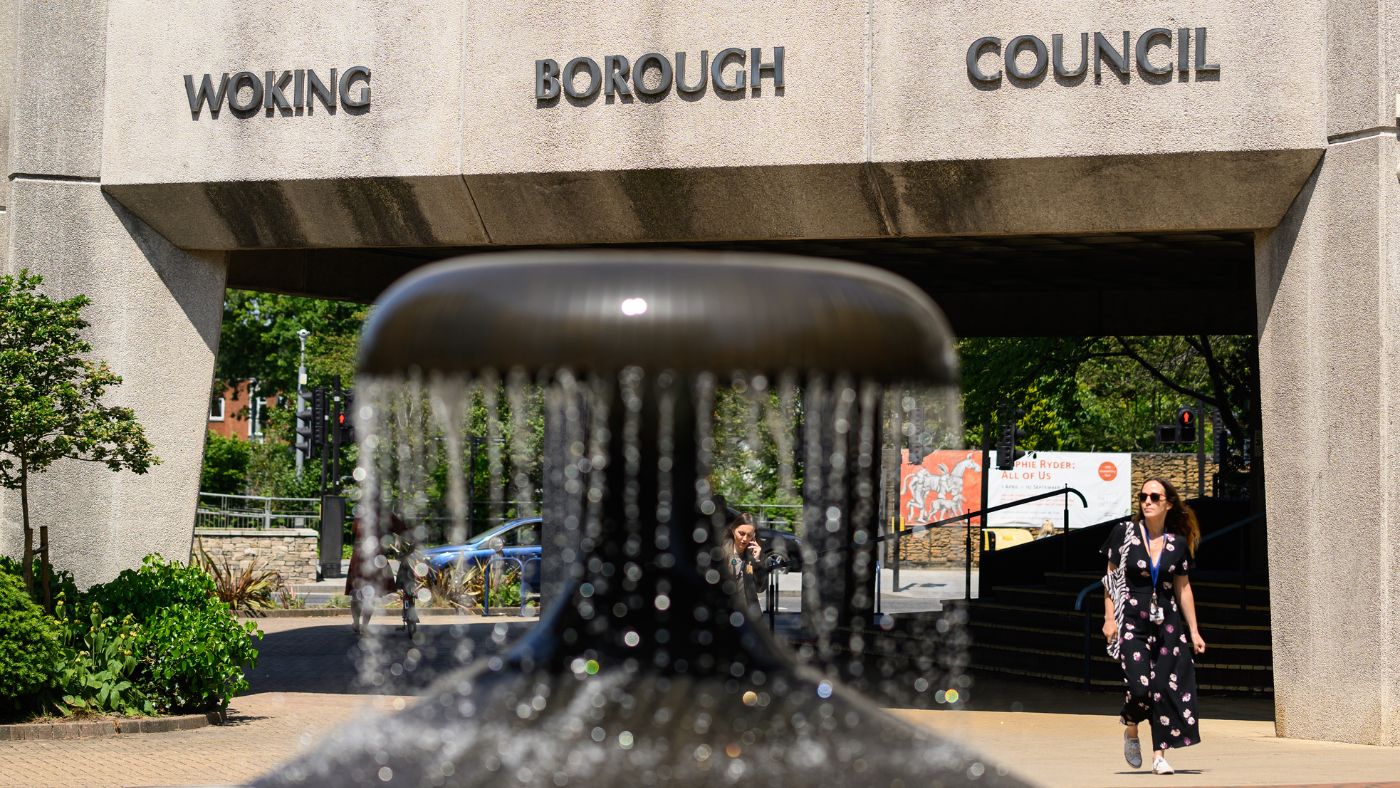 Why are so many local councils on the brink of bankruptcy?
Why are so many local councils on the brink of bankruptcy?Today's Big Question Inflation, underfunding and growing demand for services has put pressure on local authorities at the worst time
-
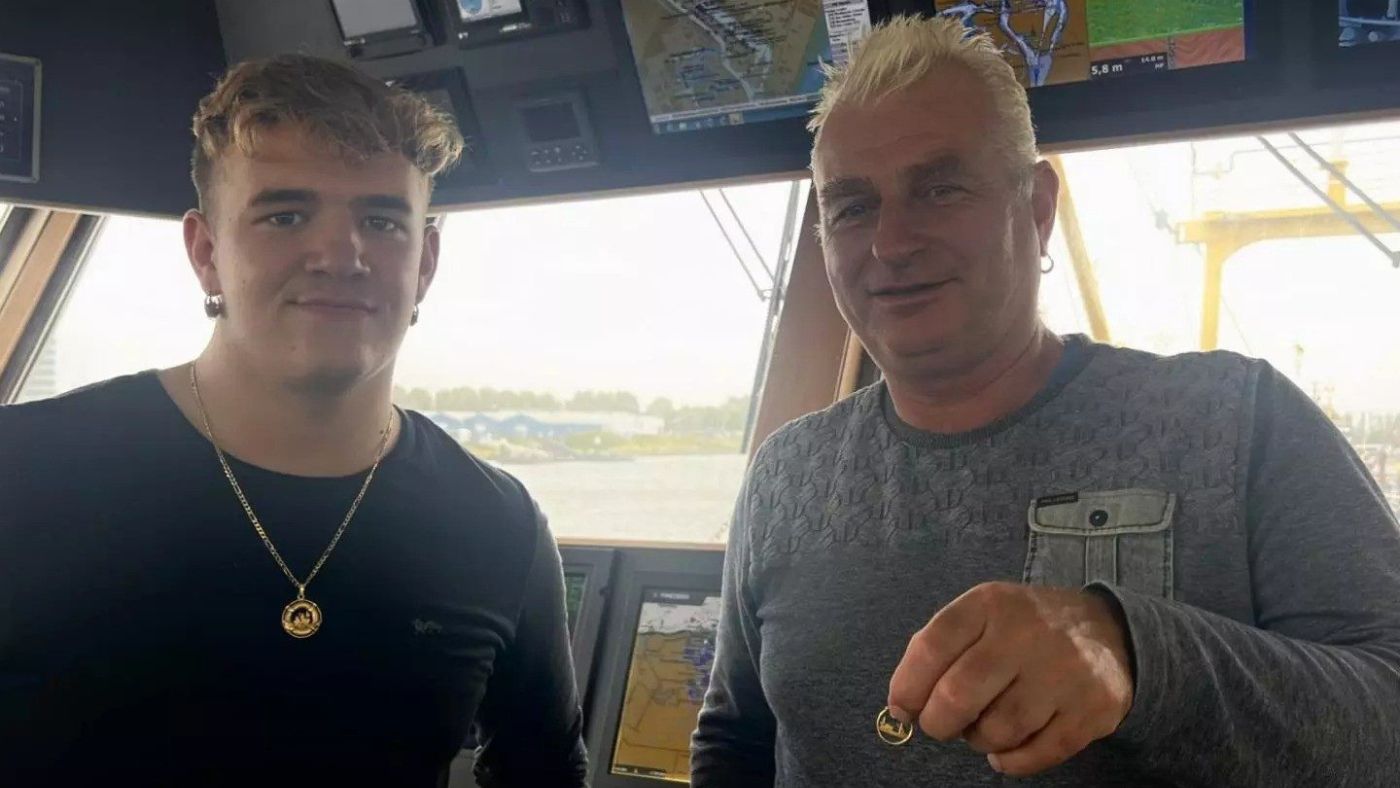 Earring lost at sea returned to fisherman after 23 years
Earring lost at sea returned to fisherman after 23 yearsfeature Good news stories from the past seven days
-
 Bully XL dogs: should they be banned?
Bully XL dogs: should they be banned?Talking Point Goverment under pressure to prohibit breed blamed for series of fatal attacks
-
 Netanyahu’s reforms: an existential threat to Israel?
Netanyahu’s reforms: an existential threat to Israel?feature The nation is divided over controversial move depriving Israel’s supreme court of the right to override government decisions